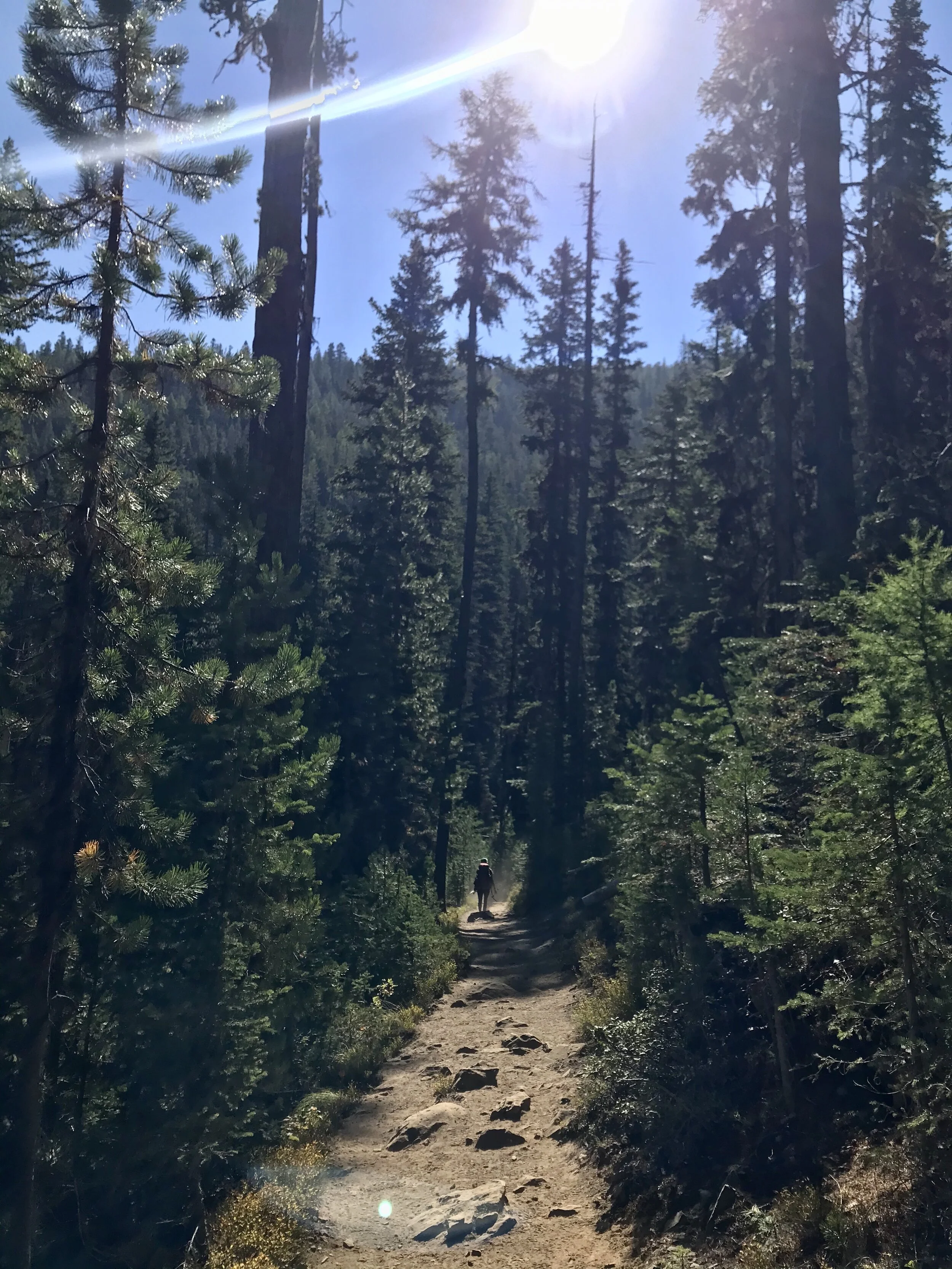Why I Believe in Gardening: Part 3
This Labor Day Weekend, I backpacked into a wilderness area with some girlfriends and my dog. On our first morning in the backcountry of Eastern Oregon, we woke to a clear mountain view. Quickly, though, thick smoke filled the valley. We bagged our plan to hike a long loop to the next lake, instead heading back toward the trailhead in case the smoke was from a nearby fire.
Sunset on Strawberry Mountain
As we hiked, the smoke burned my nose and my lungs and feet felt heavy. The fires that rage in the west each summer have become as common as snow in the winter. They burn forests and farm fields, and the smoke hangs heavy in our valleys. On a typical smokey day, I stay inside, hiding from the poor air quality. Being in the backcountry forced me to sit with the discomfort of the fire in my body, and the discomfort forced me to turn inward.
I thought about how I could keep these places protected for the wildlife who make it their home and for future generations who will see in them what I do. I thought about how the best thing I can do is to stop contributing to the problem. If I grow food naturally and without harming the environment, and teach other people to do so, then our planet can heal wherever we plant.
How to garden naturally in a world full of products can be distracting. Here’s my advice: think of how nature operates. Plants need sun, water and healthy soil to survive. The garden must be tended to ensure these elements are maintained because it’s (hopefully!) protected from the critters and situations that would otherwise provide these resources. For example, a wild plant growing near a stream will be pruned by a passing deer. That deer eats parts of the plant, allowing more sun to shine through, and then she drops manure nearby to replenish the plant’s resources.
In a kitchen garden, we protect from pests like deer, so we have to add compost regularly to replenish the nutrients. We don’t all plant near streams, so we use drip irrigation to ensure no water is wasted. Planting in the right location and pruning on a regular basis optimizes the light your plants receive. Planting intensively keeps the soil cool, allowing it to retain moisture and nutrients. Soil health is essential to gardening, as it is to our planet’s survival.
Hiking through a sunny, dusty pine forest.
Gardens are a resource we have control of increasing. They’re a source of hope, and with some time and attention, they can be habitats for the wild things that used to inhabit the places we live in now. Just in my own garden, I’ve seen praying mantis, hummingbirds, swallowtails, monarchs, toads, marmots and mule deer return to my neighborhood just in this season.
We didn’t see much wildlife on this weekend’s journey. I imagine they headed up the mountains, away from the smoke and the campers. When the smoke cleared and the sun shone on alpine lakes and ridges, I felt awed by the beauty, and the restorative feeling of a summer spent outdoors. I feel grateful to be on this planet at this time, even as it burns and resources seem scarce. I believe in the garden as a place to create change and hope. It’s a powerful thing.
If you want to learn more about naturally grown food, I hope you’ll contact me. In the meantime #getoutside


